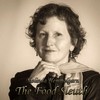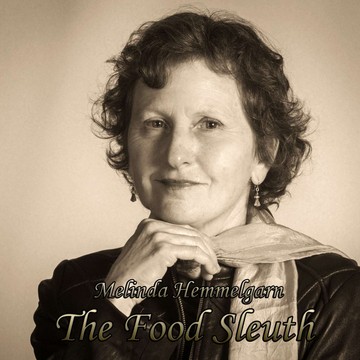

Food Sleuth Radio
Melinda Hemmelgarn
Dietitian Melinda Hemmelgarn helps listeners “think beyond their plates,” connect the dots between food, health and agriculture, and find food truth.
Episodes
Mentioned books

Jan 13, 2023 • 28min
Thomas Galligan, Ph.D., Principal Scientist for Food Additives and Supplements at the Center for Science in the Public Interest.
Did you know that many food additives allowed in the U.S. have been banned in the EU? Join Food Sleuth Radio host and Registered Dietitian, Melinda Hemmelgarn, for her interview with Thomas Galligan, Ph.D., Principal Scientist for Food Additives and Supplements at the Center for Science in the Public Interest (CSPI). Galligan explains that more than 1800 brand name food products contain titanium dioxide, yet in 2021, the European Food Safety Authority concluded that the cosmetic additive is no longer safe in foods. Galligan describes CSPI’s “Chemical Cuisine Guide,” which ranks food additives from “safe” to “avoid.”Related website: https://www.cspinet.org/page/chemical-cuisine-ratings

Jan 6, 2023 • 28min
Alison Cohen, Advocate and Coordinator of the National Right to Food Community of Practice.
Did you know that food is a key intersectional point for health, labor, human rights, agriculture, environment, and climate change? Join Food Sleuth Radio host and Registered Dietitian, Melinda Hemmelgarn, for her interview with Alison Cohen, Advocate and Coordinator of the National Right to Food Community of Practice. Cohen exposes false narratives around poverty and hunger, and advocates for a legal framework to protect the right to food.Related website: file:///C:/Users/Dan/AppData/Local/Microsoft/Windows/INetCache/Content.Outlook/1QPWI2U5/OP-ED%20White%20House%20Conference%20on%20Hunger%202022%20(1).pdf

Dec 30, 2022 • 28min
Jill Nussinow, M.S., R.D., a.k.a. “The Veggie Queen,” culinary educator and author.
Did you know that fiber-rich, plant-based diets are key to wellness? Join Food Sleuth Radio host and Registered Dietitian, Melinda Hemmelgarn, for her interview with Jill Nussinow, M.S., R.D., a.k.a. “The Veggie Queen,” culinary educator and author of multiple cookbooks. Nussinow describes the health benefits of organic, seasonal, high-fiber, whole food plant-based eating, the ease of speedy pressure cooking, and how adopting a breathing practice can enhance digestion and improve health and energy in the New Year. Hint: put mushrooms, beans and fermented foods on your food resolution list, and try the simple breathing exercise Nussinow describes.Related website: https://www.theveggiequeen.com/

Dec 23, 2022 • 28min
Matt Simon, author of A Poison Like No Other: How Microplastics Corrupted Our Planet and Our Bodies.
Did you know that microplastics have infested every corner of Earth, from the highest mountains to the deepest seas? Join Food Sleuth Radio host and Registered Dietitian, Melinda Hemmelgarn, for her interview with Matt Simon, journalist, staff writer at Wired, and author of A Poison Like No Other: How Microplastics Corrupted Our Planet and Our Bodies (https://islandpress.org/author/matt-simon ). Simon describes the “unbearable burden” of this insidious pollutant on our personal and planetary health, and ways we can work to curtail its production.Related website: http://www.mattsimon.net/

Dec 16, 2022 • 28min
Theresa Stahl, R.D., Registered Dietitian certified in mind body medicine, and author of I’m Full: Remindful Eating Tips to Feel Great and Make Peace with Your Plate.
Did you know that the most popular New Year’s resolutions include losing weight and exercising more? Join Food Sleuth Radio host and Registered Dietitian, Melinda Hemmelgarn, for her interview with Theresa Stahl, Registered Dietitian certified in mind body medicine, and author of I’m Full: Remindful Eating Tips to Feel Great and Make Peace with Your Plate. Stahl describes her personal struggles with eating, explains how to embrace mindfulness, and shares insights from her decades of working with patients to help us reach our New Year goals, and enjoy safe and nourishing holidays.Related website: https://www.remindfuleating.com/

Dec 9, 2022 • 28min
Teofilo Reyes, Ph.D., Restaurant Workers Bill of Rights
Did you know that restaurant workers have united to correct unfair labor practices in the workplace? Join Food Sleuth Radio host and Registered Dietitian, Melinda Hemmelgarn, for her interview with Teofilo Reyes, Ph.D., Chief Program Officer for Restaurant Opportunities Centers United. Reyes describes the major unfair labor practices among restaurant and food service workers, including wage theft, poverty wages, and lack of access to health care and time-off for rest and recovery. He discusses the stress of Covid, the basic tenets of the Restaurant Workers Bill of Rights. and how we can offer support.Related website: https://rocunited.org/bill-of-rights/

Dec 2, 2022 • 28min
Martin Bourque, Executive Director, the Ecology Center, Berkeley, CA https://ecologycenter.org/ discusses the myths of plastic recycling.
Did you know that most plastic packaging is not recyclable? Join Food Sleuth Radio host and Registered Dietitian, Melinda Hemmelgarn, for her interview with Martin Bourque, Executive Director, the Ecology Center, based in Berkeley, CA with international reach. Bourque pulls back the curtain on plastic recycling myths and describes meaningful policy action we can take to reduce plastic’s toxic footprint on our planet.Related website: https://ecologycenter.org/https://upstreamsolutions.org/ https://www.breakfreefromplastic.org/

Nov 25, 2022 • 28min
Jill Lindsey Harrison, Ph.D., author of Pesticide Drift and the Pursuit of Environmental Justice
Did you know that pesticide drift is a widespread, largely invisible problem that disproportionately harms racially marginalized, Indigenous, and working-class communities? Join Food Sleuth Radio host and Registered Dietitian, Melinda Hemmelgarn, for her interview with Jill Lindsey Harrison, Ph.D., Associate Professor of Geography at the University of Colorado – Boulder, and author of Pesticide Drift and the Pursuit of Environmental Justice (MIT Press). Harrison discusses the plight of poor agricultural workers, and the pesticide industries’ marketing strategies, and influence on educational institutions and regulatory agencies.Related website: https://www.colorado.edu/geography/jill-lindsey-harrison

Nov 18, 2022 • 28min
Mark Winne, community food activist, writer, and Senior Advisor to the Food Policy Networks Project at the Johns Hopkins Center for a Livable Future
Did you know that all the feeding assistance programs in the world won’t solve the root cause of hunger, which is poverty? Join Food Sleuth Radio host and Registered Dietitian, Melinda Hemmelgarn, for her interview with Mark Winne, community food activist, writer, and Senior Advisor to the Food Policy Networks Project at the Johns Hopkins Center for a Livable Future, for his discussion of the recent White House Conference on Hunger, Nutrition and Health, and his recent blog post on the conference: https://www.markwinne.com/the-white-house-hunger-conference-dispatch-from-a-man-who-wasnt-there/ Winne shares his expertise in hunger and food insecurity, describes food systems, and explains what was missing from the recent White House Conference. He addresses the benefits and pitfalls of SNAP – the Supplementary Nutrition Assistance Program, and steps we can take to improve our food system, food security and health. His most recent book, Food Town USA (Island Press, 2019), explores communities in which food has been at the heart of healthy economic growth.Related website: www.markwinne.com

Nov 11, 2022 • 28min
Adam Alexander, author of The Seed Detective: Uncovering the secret histories of remarkable vegetables.
Did you know that home gardeners have a critical role in helping to conserve the biodiversity of crops, which is crucial in combatting climate change? Join Food Sleuth Radio host and Registered Dietitian, Melinda Hemmelgarn, for her interview with Adam Alexander, award-winning film and television producer, and author of The Seed Detective: Uncovering the Secret Histories of Remarkable Vegetables (Chelsea Green 2022). Alexander discusses his true passion: collecting rare, endangered, but above all, delicious vegetables from around the world. He explores the social and cultural relationships we have with what we grow, and explains why and how vegetables have become lost or extinct. You can watch Alexander’s entertaining videos here: The adventures of a seed detective: https://www.youtube.com/watch?v=jHbaJ80X_Jk Related website: https://theseeddetective.co.uk/


